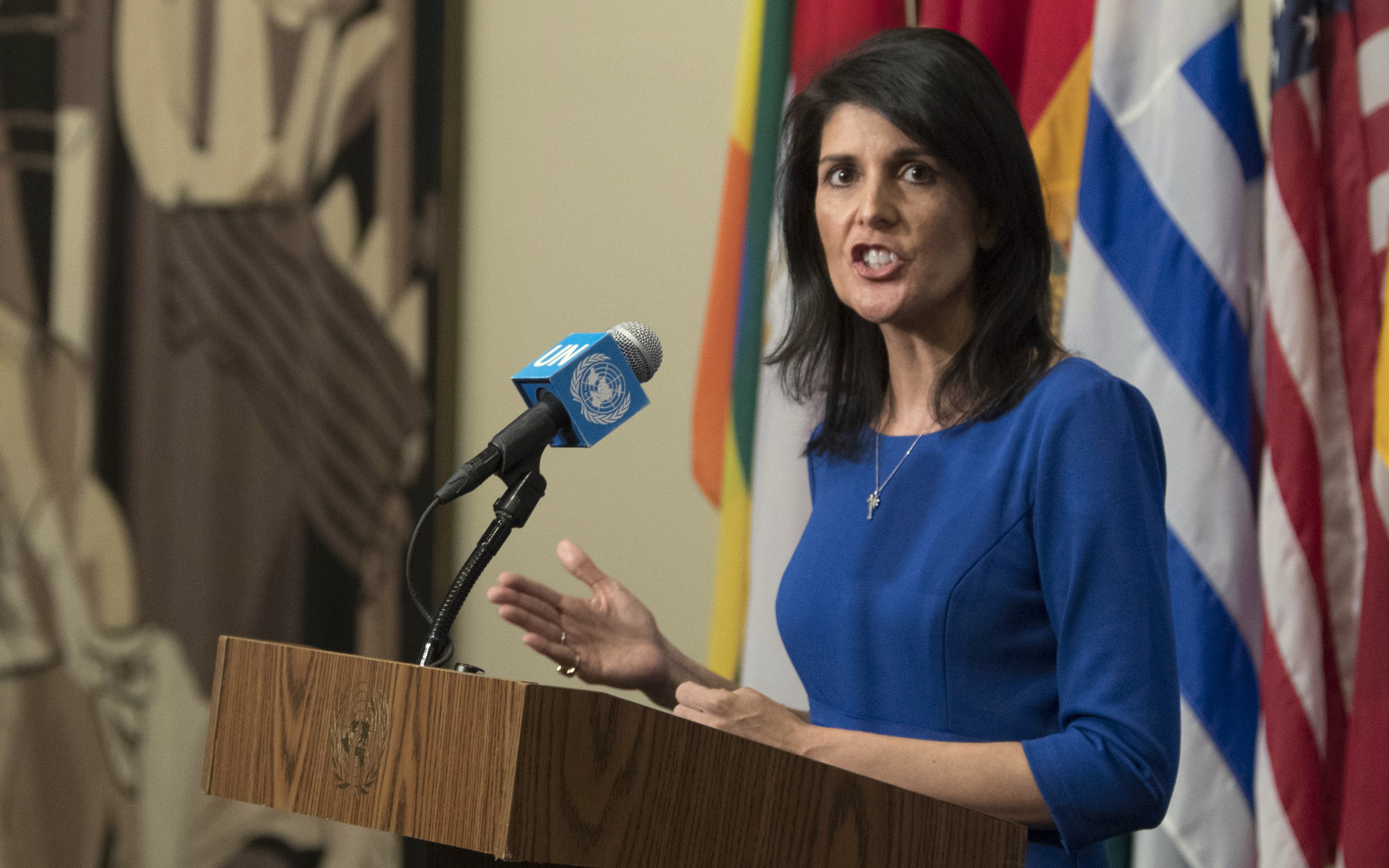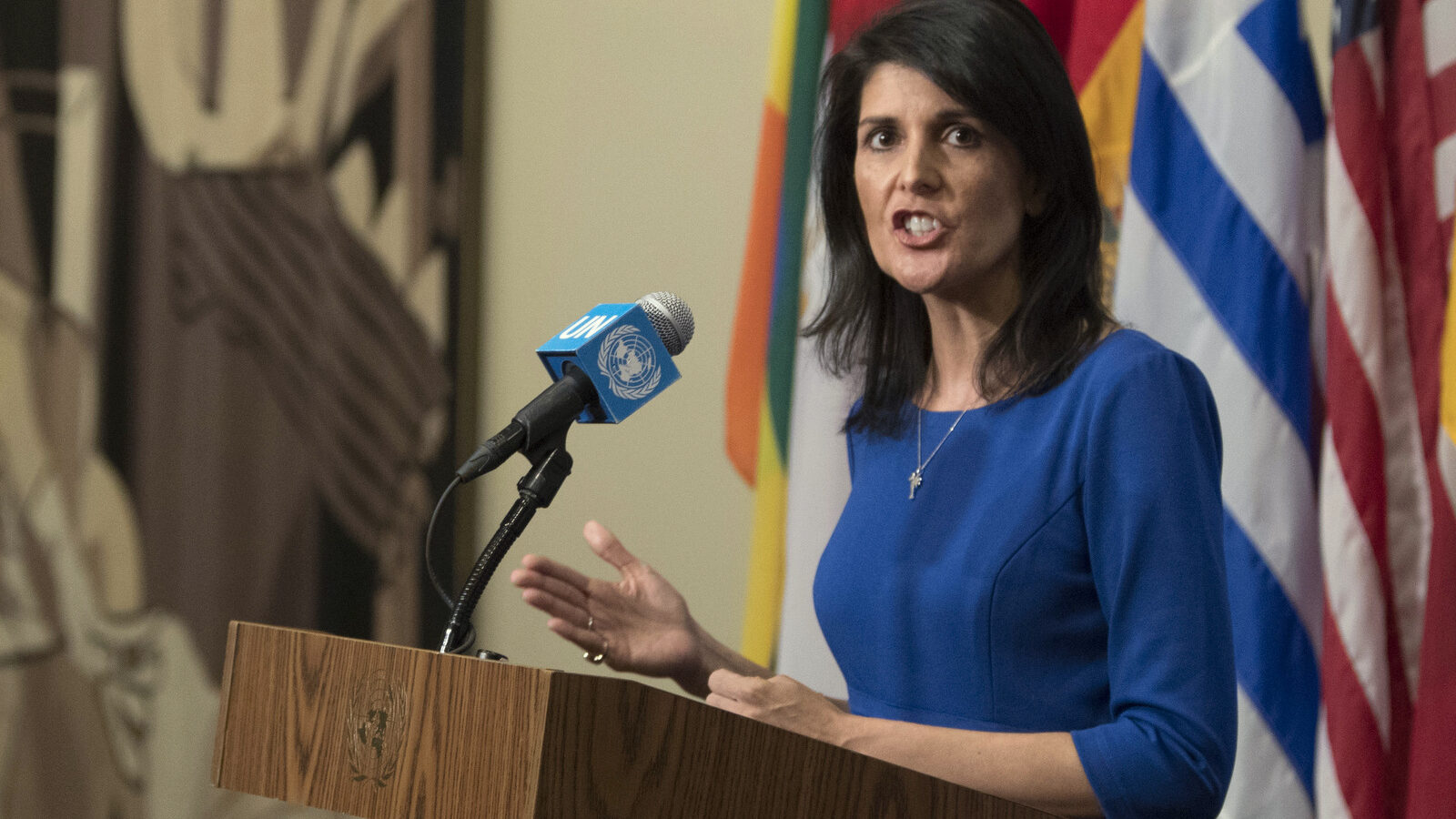
(ANALYSIS) — In a draft initiated and supported by the United States, U.K., and France, a plan was put forward to impose new sanctions on the Syrian government in the form of a ban on all shipments of helicopters to the army or the government. It also included sanctions on a number of Syrian officials and government institutions allegedly involved in “chlorine attacks.” The draft resolution received nine votes, the minimum necessary for passing such a document. However, both the Russians and the Chinese as well as the Bolivians vetoed the measure with Egypt, Kazakhstan, and Ethiopia abstaining.
The coalition of Western powers who submitted the draft used dubious claims by the OPCW-UN Joint Investigative Mechanism that attempted to blame the Syrian government for dropping “chlorine bombs” on civilians. That report, however, was fraught with shoddy investigation and relied mostly on “witnesses” cherry picked by pro-terrorist, anti-Syrian NGOs and “opposition” members.
U.S. Ambassador to the United Nations, Nikki Haley, stated,
The names of people and companies involved in Assad’s use of chemical weapons are public – all listed in the annex of this draft resolution for everyone to see. The United States has already designated for sanctions every person and every entity listed in the annex. We will work with our EU and other like-minded partners to push for similar sanctions as soon as possible.
Yet the Russian Foreign Ministry responded by saying that the draft resolution was an obviously cynical political move designed to split the UN security council and scuttle negotiations with no real results except that it would harm the international fight against terrorism.
“The fight against ISIL (former name of the Islamic State group outlawed in Russia) and other terrorist groups in Syria should be imperative for everyone. Any unilateral or multilateral sanctions against Damascus will only weaken the international anti-terrorist front,” the Ministry said.
“There is no doubt that such initiatives at the UN Security Council and OPCW platforms can have an adverse effect on the prospects for a political settlement in Syria, the talks on which were relaunched in Geneva on February 23. They also impair work on establishing the intra-Syrian dialogue that successfully began in Astana,” the Ministry added.
The Ministry also stated,
Russia has put forward these arguments during the consultations on the draft resolution over the past few months.
. . . . .
Nevertheless, the Western trio deliberately and evidently with provocative aims has gone as far as to split the UN Security Council and to inject a draft, knowing beforehand that it was unacceptable for Russia (and not only for it) and so would be vetoed. Along with this, the co-authors of the document were dodging by any means from the search for compromise solutions. Actually, their goal was not to find effective and mutually acceptable solutions but to polarize attitudes and aggravate the situation.
The Ministry also expressed gratitude for those countries that, “realizing that such actions are inappropriate and untimely and correctly evaluating the terrorist threats emanating from that region, including its ‘chemical’ component, deemed it necessary to vote against or disagree with this harmful initiative.”
In addition, Russia’s Deputy Permanent Representative to the UN, Vladmir Safronkov, stated that the United States and the other initiators of the draft have embarked upon a strategy of confrontation.
Despite our consistent appeals, the authors chose a politically motivated path, leading to confrontation and adding complexity to the situation, including on our Security Council platform.
. . . . .
They opted for deliberately heating up tensions, being well aware from the very start that this initiative has no chances of being approved at the Security Council.
He also said that Russia “had no other choice but to block the passing of this resolution, the sanction list of which is copied from the analogous American list, approved at the start of this year by the previous US administration.”
While many may have hoped that Donald Trump would bring a more rational approach to foreign policy, especially when it comes to Syria and Russia, all signs are pointing in the opposite direction, with the Trump regime sending clear signals that it is going to be just as anti-Russia and focused on the destruction of Syria as the previous administration.
Even while it is reasonable and admirable to hope for the best, there does come a time when an individual has to admit that certain ships have sailed and that the best is not to come. When that time arrives, he must become active in ensuring that the best does, in fact, happen despite the obstacles and the disappointments that have prevented positive change.
First, however, if he has been fooled, he must admit that he has been fooled. With that in mind, it appears that many Trump supporters are no doubt going to have to go through a difficult process of admission and re-examination in the coming weeks and months.
 This work by Activist Post is licensed under a Creative Commons Attribution-NonCommercial-ShareAlike 3.0 International License.
This work by Activist Post is licensed under a Creative Commons Attribution-NonCommercial-ShareAlike 3.0 International License.


